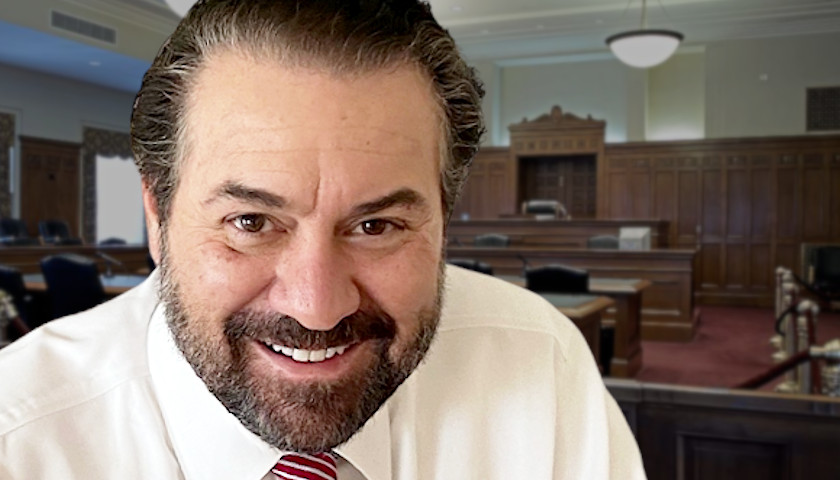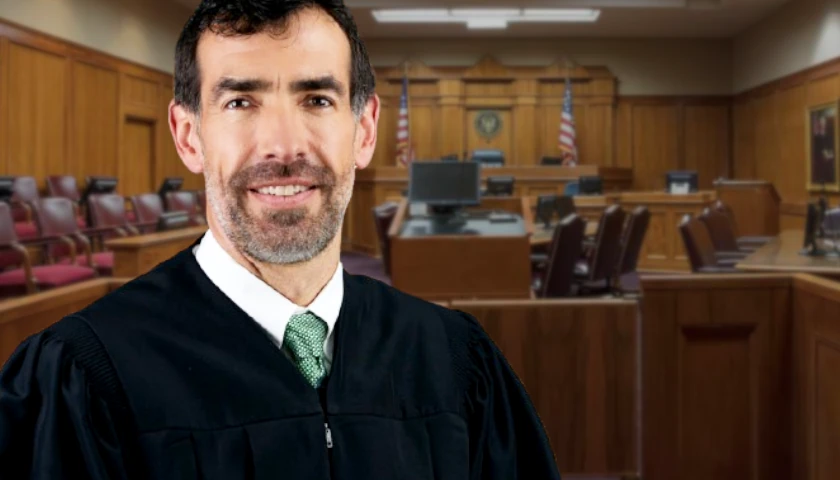Arizona Attorney General Mark Brnovich (R) applauded the ruling from a Pima County judge Friday, which reinstated Arizona’s law prohibiting abortions.
“A Pima County judge lifted an injunction that was placed on Arizona’s abortion statute,” said Brnovich. “We applaud the court for upholding the will of the legislature and providing clarity and uniformity on this important issue. I have and will continue to protect the most vulnerable Arizonans.”
A Pima County judge lifted an injunction that was placed on AZ’s abortion statute. We applaud the court for upholding the will of the legislature and providing clarity and uniformity on this important issue. I have and will continue to protect the most vulnerable Arizonans.
— Mark Brnovich (@GeneralBrnovich) September 23, 2022
The law in question, Arizona Revised Statute (ARS) § 13-3603, bans nearly all abortions in the state. There are no omissions for rape or incest, with the sole exception being to protect a mother’s life. The law does not mention that women can be prosecuted for having an abortion. The punishment would fall on anyone who performs or provides substances needed for the procedure, with between two and five years of jail time.
The ruling was written by Judge Kellie Johnson, which outlined the initial injunction against the law. In July 1971, the Planned Parenthood Center of Tucson, ten physicians, and an anonymous pregnant woman filed a complaint against the law. The case proceeded to trial, and in 1972, a trial judge found the statute unconstitutional, but that ruling was challenged by the Attorney General (AG) and Pima County Attorney (PCA). The Court of appeals reversed the decision, making the law constitutional again in 1973.
Three weeks later, the Supreme Court of the United States (SCOTUS) released its decision on Roe v. Wade. The Court of Appeals then vacated its opinion on the “sole and express grounds” of the SCOTUS decision. The trial judge again ruled the statute unconstitutional and permanently enjoined the AG, PCA, and all successors from taking or threatening any action to enforce the law.
However, SCOTUS overturned Roe. V. Wade in June 2022 and held that the Constitution does not confer a right to abortions, leaving the authority to regulate abortions to “the people and their elected representatives.”
Under Ariz. R. Civ. P. 60(b)(5), the court can relieve a party or its legal representatives from a final judgment if “applying it prospectively is no longer equitable.” Johnson shared that SCOTUS’s decision resulted in “a significant change in law” that is no longer equitable to enforce the judgment as originally entered.
Brnovich argued that the judgment should be vacated in its entirety. However, Planned Parenthood fought this, arguing that the reinstatement of the law would conflict with laws passed since the original injunction and that the court must modify the injunction to “harmonize” with today’s statutes.
Ultimately, the court decided that modifying the injunction to agree with laws not in existence when the original complaint was filed is “procedurally improper” in the context of 60(b)(5).
Therefore, because of the overturning of Roe v. Wade, on which the original injunction was grounded, Johnson granted Brnovich’s motion for relief from judgment and reinstated the abortion law.
– – –
Neil Jones is a reporter for The Arizona Sun Times and The Star News Network. Follow Neil on Twitter. Email tips to [email protected].
Photo “Mark Brnovich” by Mark Brnovich. Background Photo “Courtroom” by Carol M. Highsmith.





